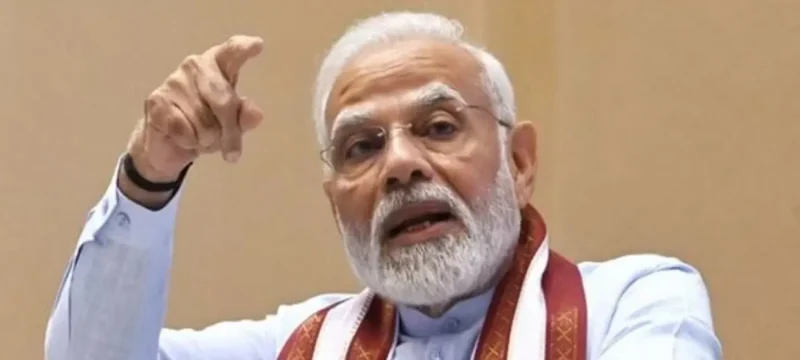Virender Singh, a manual laborer scraping by on odd jobs, asserts that Indian Prime Minister Narendra Modi’s endeavors to uplift India surpass his own daily struggles to make ends meet. Despite being in power for a decade, Modi’s popularity remains remarkably high, portraying himself as the guardian of India’s global stature and the interests of the majority religion.
As over two dozen opposition parties gear up to challenge his Hindu-nationalist government in upcoming elections, their campaigns highlighting economic hardships fail to resonate with voters like Singh. Living in a New Delhi slum, Singh competes for temporary construction jobs daily, believing that regardless of who holds power, the plight of the poor remains unchanged, and Modi’s leadership should persist.
Also Read: Indian Vendor Allegedly Mixes Bodily Fluids in Falooda
Riding on a well-funded campaign largely backed by corporate contributions, the 73-year-old Modi commands significant support, with nearly 80% of Indians expressing favorable views of him, according to a Pew survey. His recent oversight of the groundbreaking ceremony for a contentious temple in northern India underscores his commitment to Hindu-first politics, drawing both fervent support from Hindus and concern from religious minorities.
Nilanjan Mukhopadhyay, a biographer of Modi, observes that Modi has successfully convinced his supporters that prioritizing Hindu hegemony over minority rights is paramount. Meanwhile, the opposition alliance, the Indian National Developmental Inclusive Alliance (INDIA), appears resigned ahead of the elections, despite efforts by figures like Rahul Gandhi to connect with voters and highlight economic challenges.
Gandhi, having faced defeat against Modi twice before, refrains from positioning himself as a potential prime minister this time, aiming to avoid internal conflicts within the alliance. Despite his attempts to address grassroots issues, Gandhi’s efforts are often overshadowed by Modi’s dominance in the media landscape, which many criticize for its bias towards the ruling party.
Modi’s term has seen several milestones, including the launch of high-speed rail services and successful space missions, portrayed as symbols of India’s progress. However, critics argue that mainstream media often serves as a mouthpiece for the government, amplifying its narrative while sidelining opposition voices.
The opposition alliance’s credibility suffers from internal discord, hindering their ability to present a unified alternative to Modi’s leadership. Accusations of Modi’s party manipulating the electoral process and benefiting from a controversial donation program further undermine trust in the opposition’s ability to challenge the status quo.
Despite challenges, Modi’s grip on power remains firm, with his party accused of tilting the playing field in its favor. As the nation braces for elections, the structural weaknesses of the opposition alliance pose a formidable obstacle to Modi’s detractors, reinforcing his standing as a dominant political force in India.









